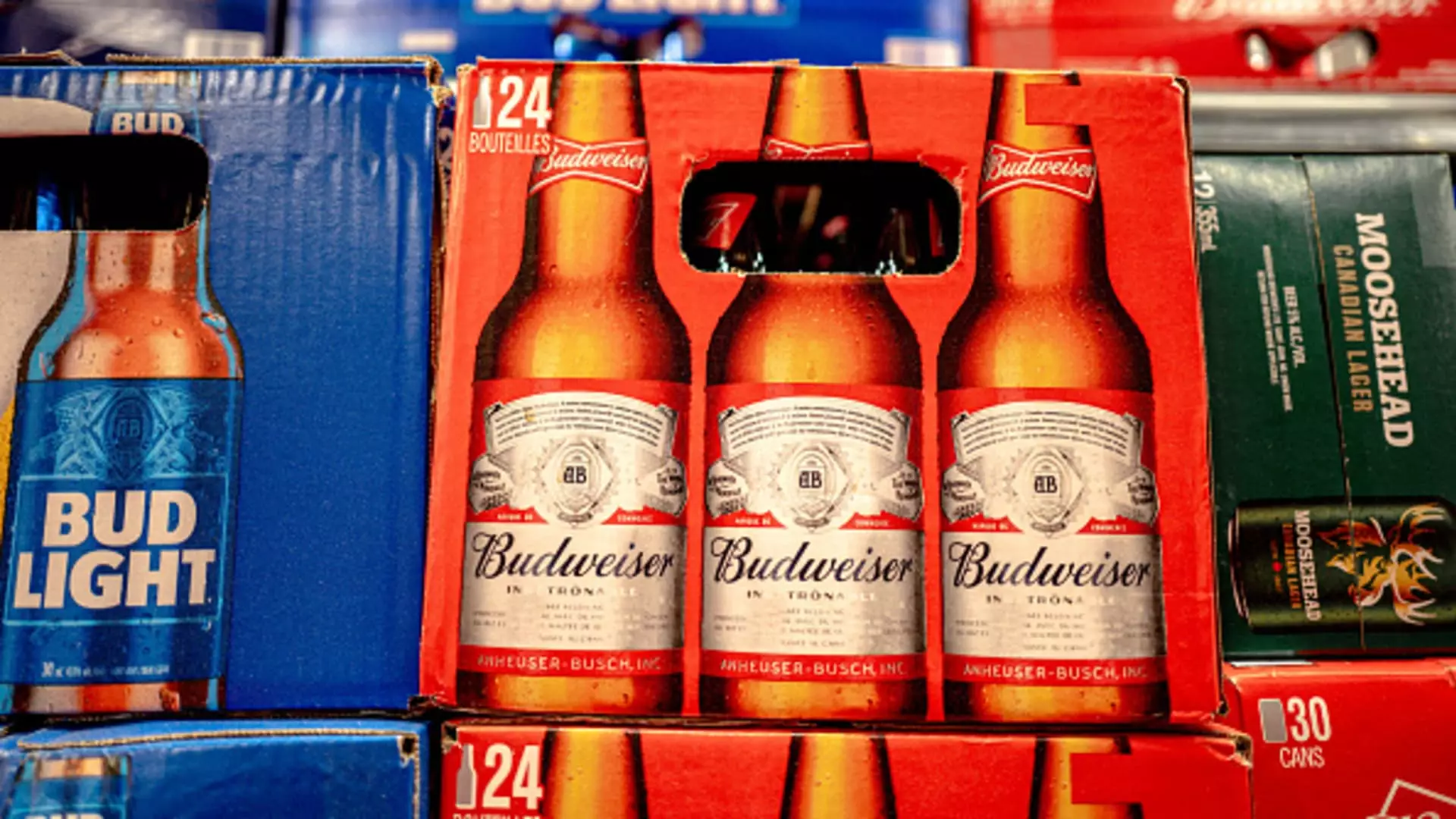On Wednesday, shares of Anheuser-Busch InBev (AB InBev), the world’s leading beer brewer, surged nearly 9% following their impressive fourth-quarter sales report. Despite experiencing a reduction in total volumes sold, the company outperformed analysts’ predictions, showcasing a 3.4% increase in quarterly revenue, amounting to $14.84 billion. This exceeded LSEG’s forecast of $14.05 billion, which anticipated a decline of 2.9%. By the end of the trading day, shares reflected an 8.5% gain, signaling a strong market response to the company’s financial results.
Full-year revenues likewise showed growth, increasing by 2.7% to $59.77 billion, slightly above analysts’ expectations of $59.3 billion. However, the overall volume sold saw a decline of 1.9% for the fourth quarter and 1.4% for the year, primarily attributed to diminished demand in crucial markets like China and Argentina. This decline raises questions about consumer behavior and market dynamics in significant international regions, as the firm’s CEO, Michel Doukeris, highlighted these trends as “very abnormal.”
Market Weakness and Future Expectations
Doukeris elaborated on the challenges faced in China and Argentina, attributing the drops in consumer demand to broader industrial weaknesses that are negatively impacting consumer sentiment. However, he remains optimistic, suggesting that they anticipate a gradual recovery in these markets throughout the current year. This hopeful outlook is bolstered by the recognition that while beer product sales have dipped, there remains robust demand for the company’s non-beer offerings, such as cocktail brands like Cutwater Spirits and Brutal Fruit Spritzer.
At a time when many sectors are experiencing shifts in consumer behavior, AB InBev’s confident stance on the resilience of global beer consumption is noteworthy. Doukeris stated, “Market momentum is good,” arguing that the category retains its vibrancy and appeal among consumers. With his position, he is reinforcing the notion that the global beer market, despite suffering from temporary setbacks, continues to have a strong foundation.
Looking toward the future, foreign exchange fluctuations are a primary concern for AB InBev as they prepare for 2025. Doukeris pointed to the strength of the U.S. dollar as a significant factor that could impact earnings but downplayed fears related to potential U.S. tariffs, suggesting that the company is well-equipped to mitigate these threats.
The board’s financial targets remain aggressive, focusing on achieving EBITDA growth in line with their medium-term forecast of 4% to 8%. This follows a solid 10.1% rise in EBITDA reported for the fourth quarter, along with an 8.2% increase over the entire fiscal year. This ambition signals that while AB InBev is facing changing market conditions, they have strategies and goals aimed at overcoming these obstacles.
AB InBev’s situation mirrors broader trends within the beverage industry, reflecting a notable pivot in consumer preferences toward lower alcohol consumption. In a related move, Danish brewer Carlsberg has expanded its portfolio to include a significant percentage of non-alcoholic beverages, recognizing the continued relevance of beer products while also cultivating resilience in a shifting market.
Doukeris has acknowledged this global shift toward alcohol moderation, interpreting the growing acceptance and demand for non-alcoholic products as an opportunity to diversify the consumer base and enhance market viability. He pointed out that such beverages often appeal to health-conscious consumers, appealing to those who seek lower-calorie options compared to traditional soft drinks.
While AB InBev grapples with challenges such as volume decline in critical markets and evolving consumer preferences, the company’s strategic outlook and strong financial performance augur well for its future. With a firm commitment to adapting to market dynamics, there lies a promising horizon for the world’s largest brewer in an ever-changing global landscape. The road ahead may not be simple, but AB InBev’s resilience and innovation could play a pivotal role in navigating these complexities.

